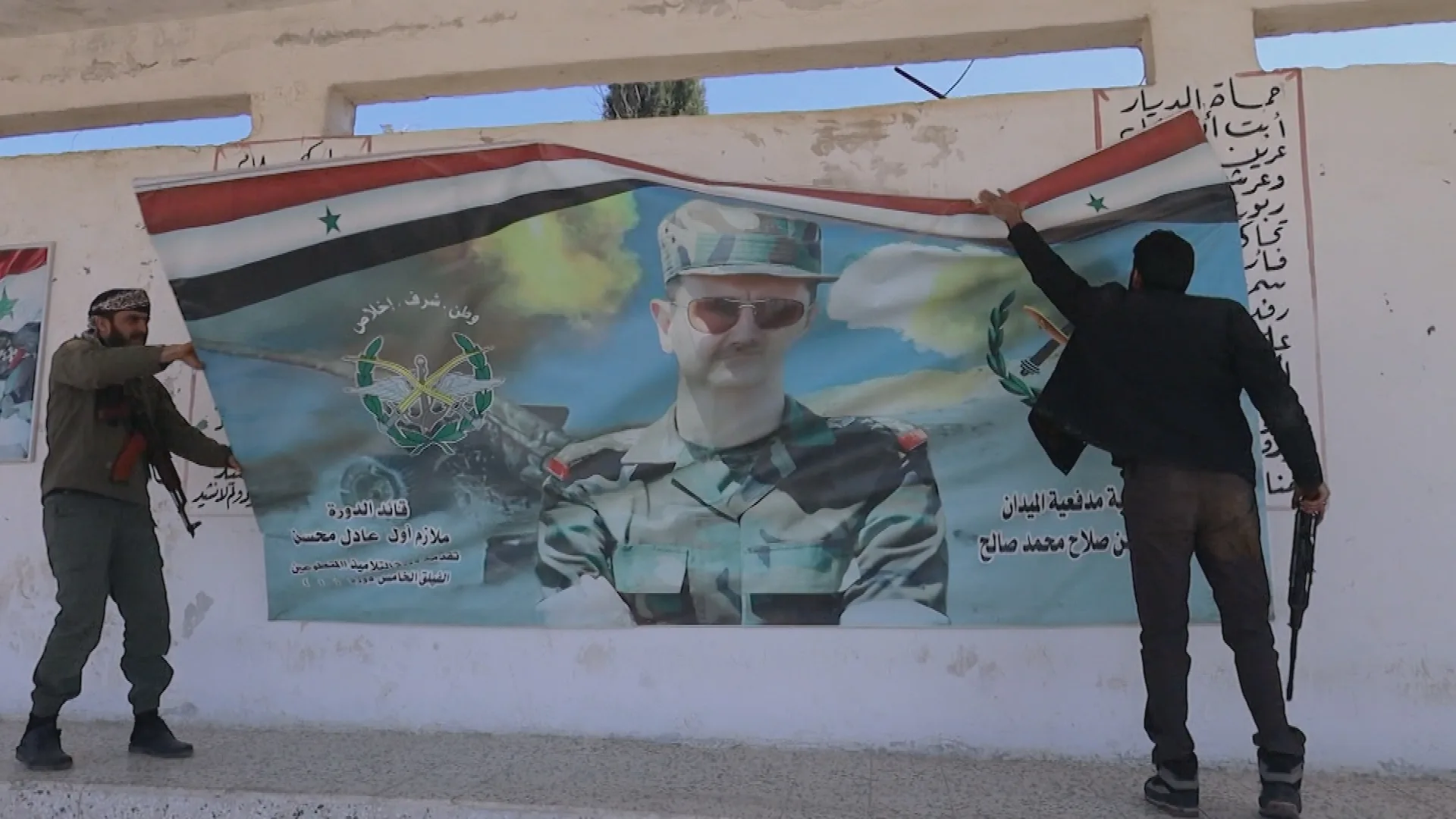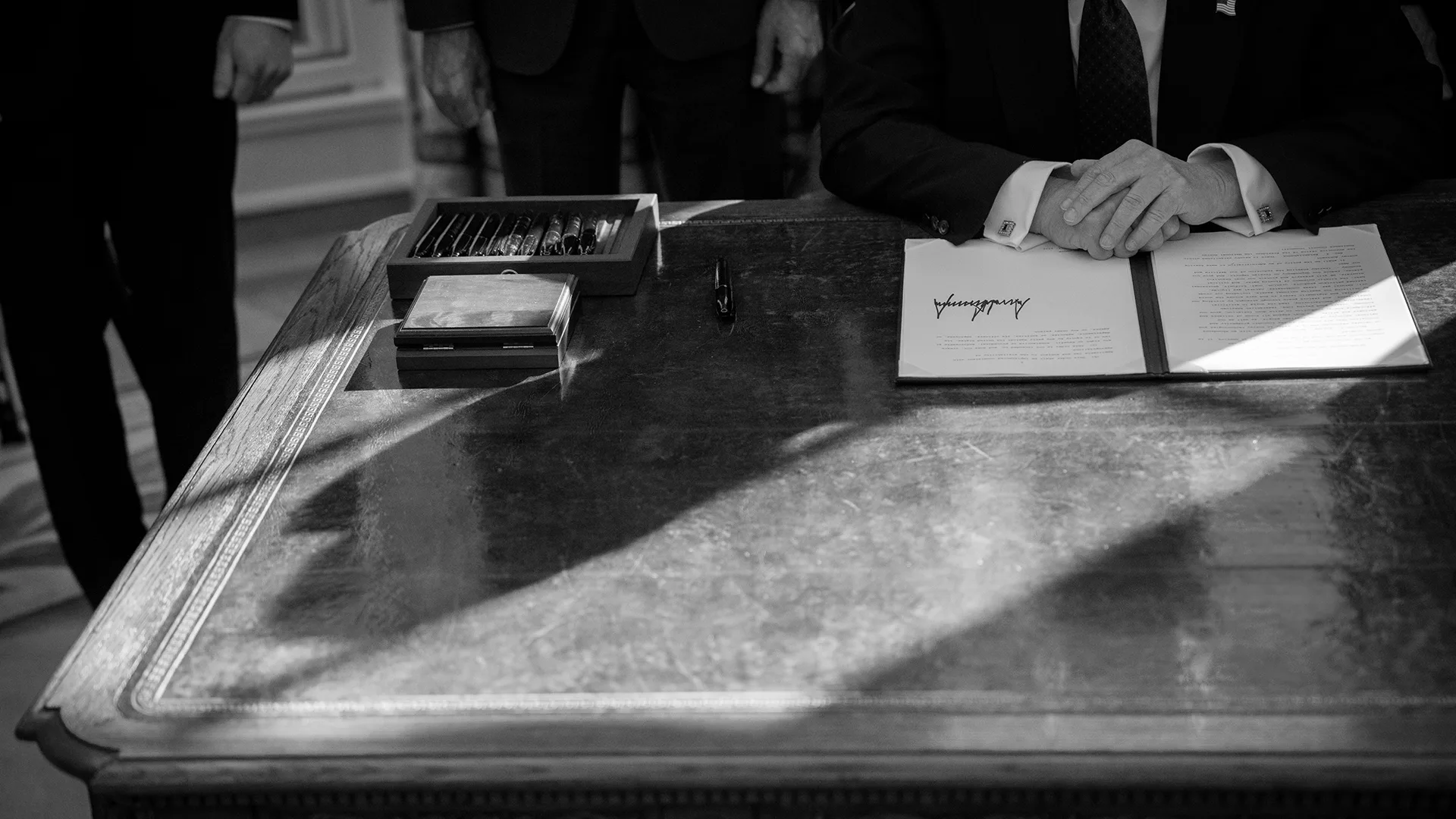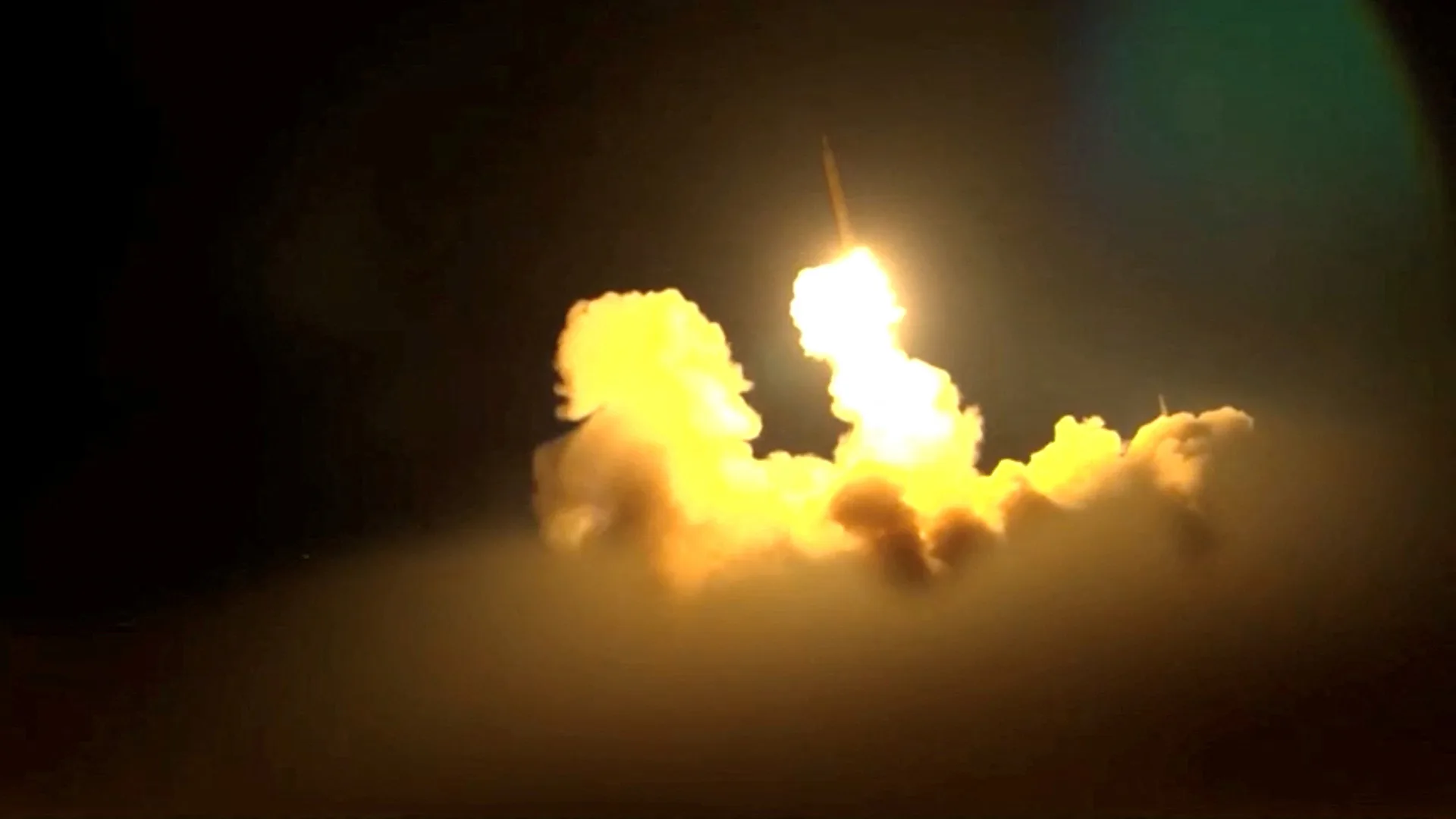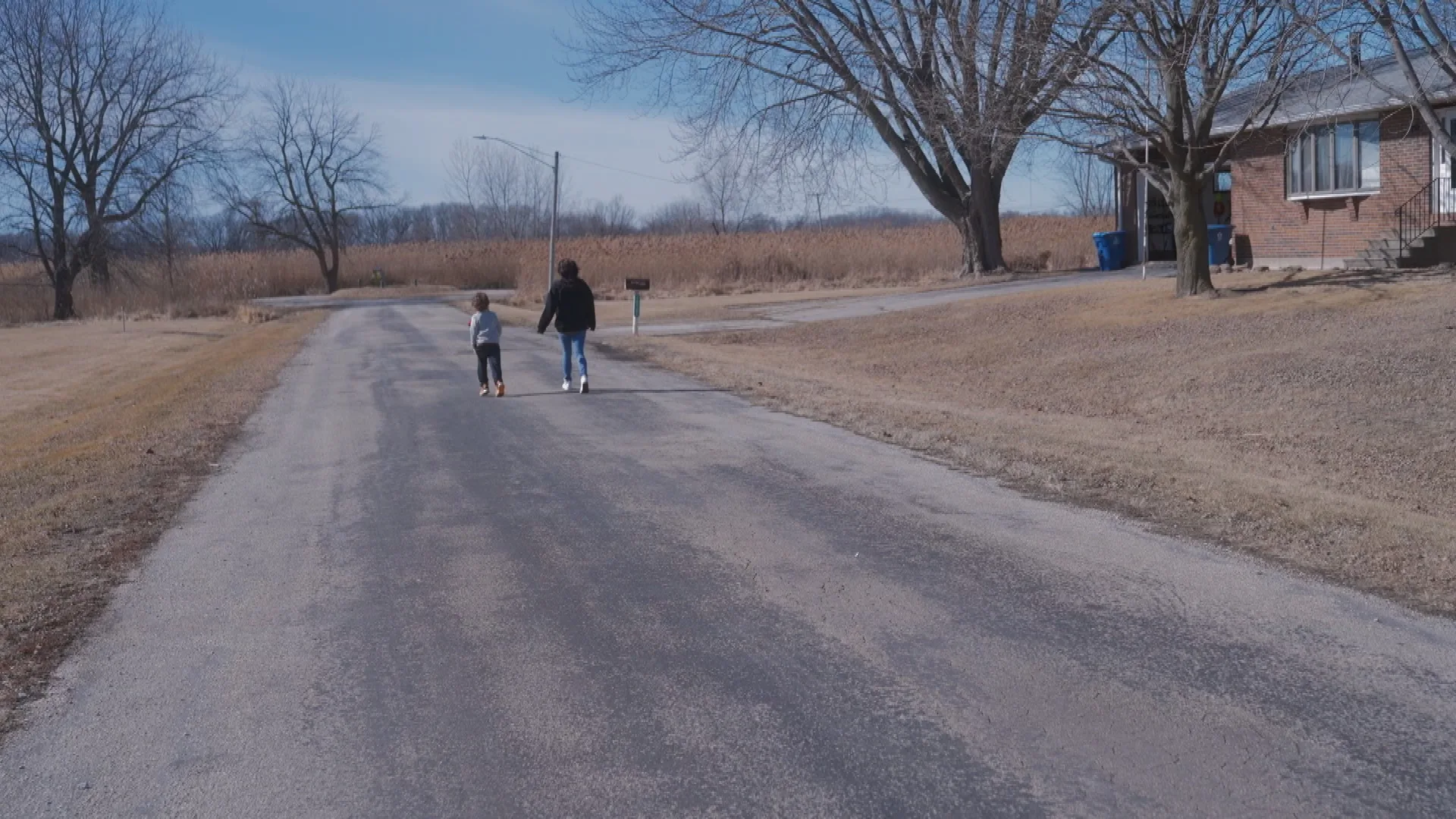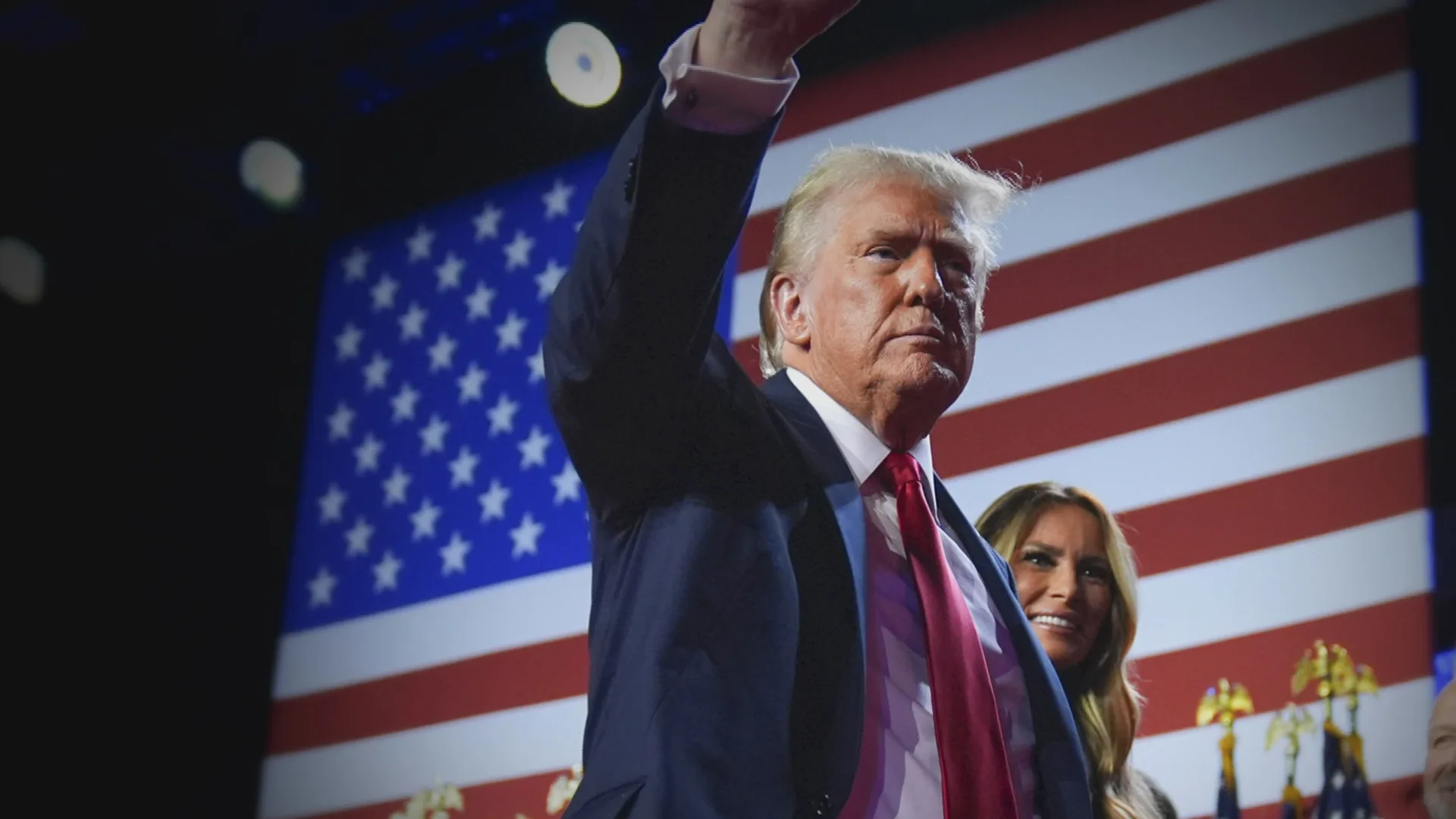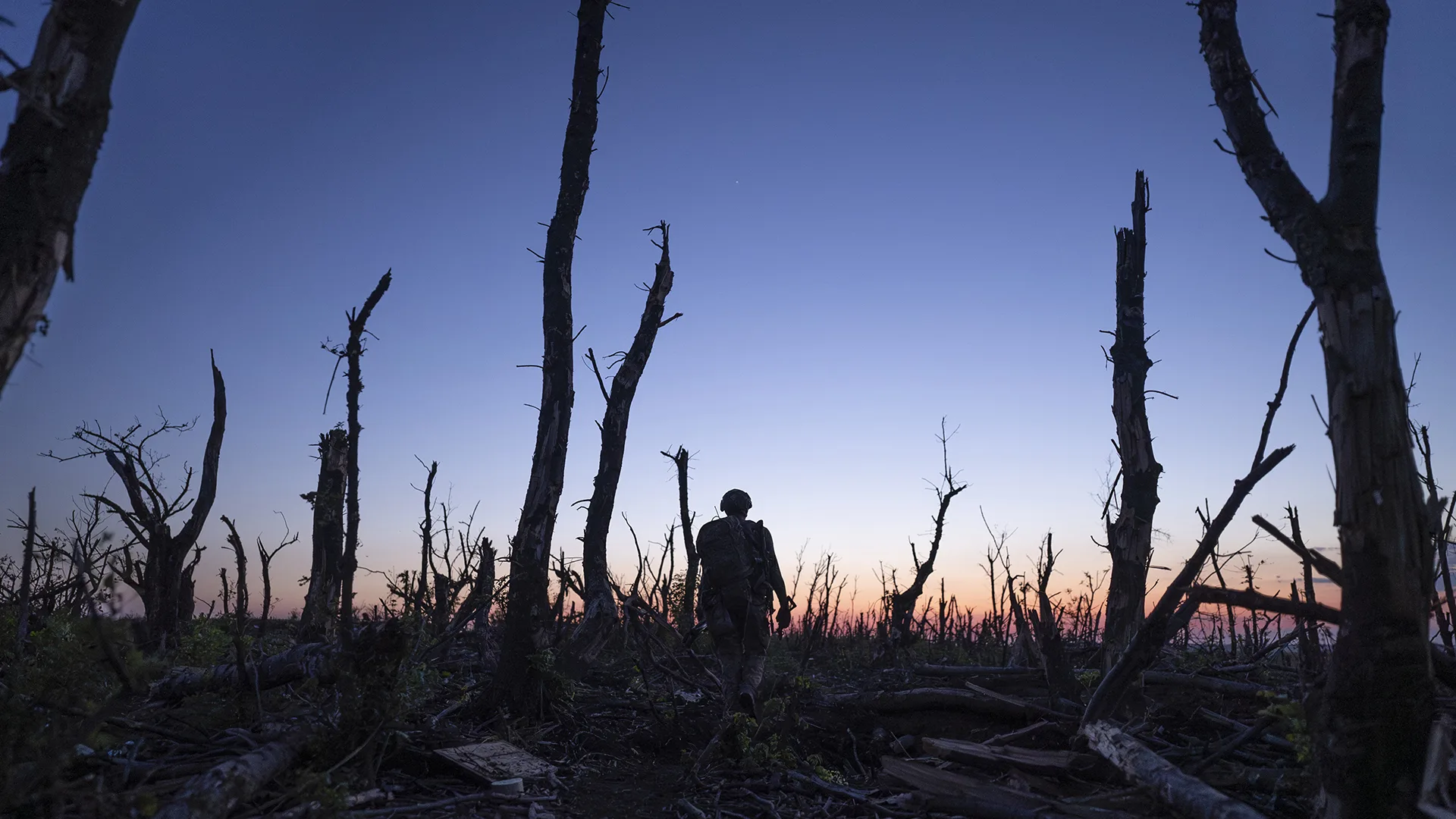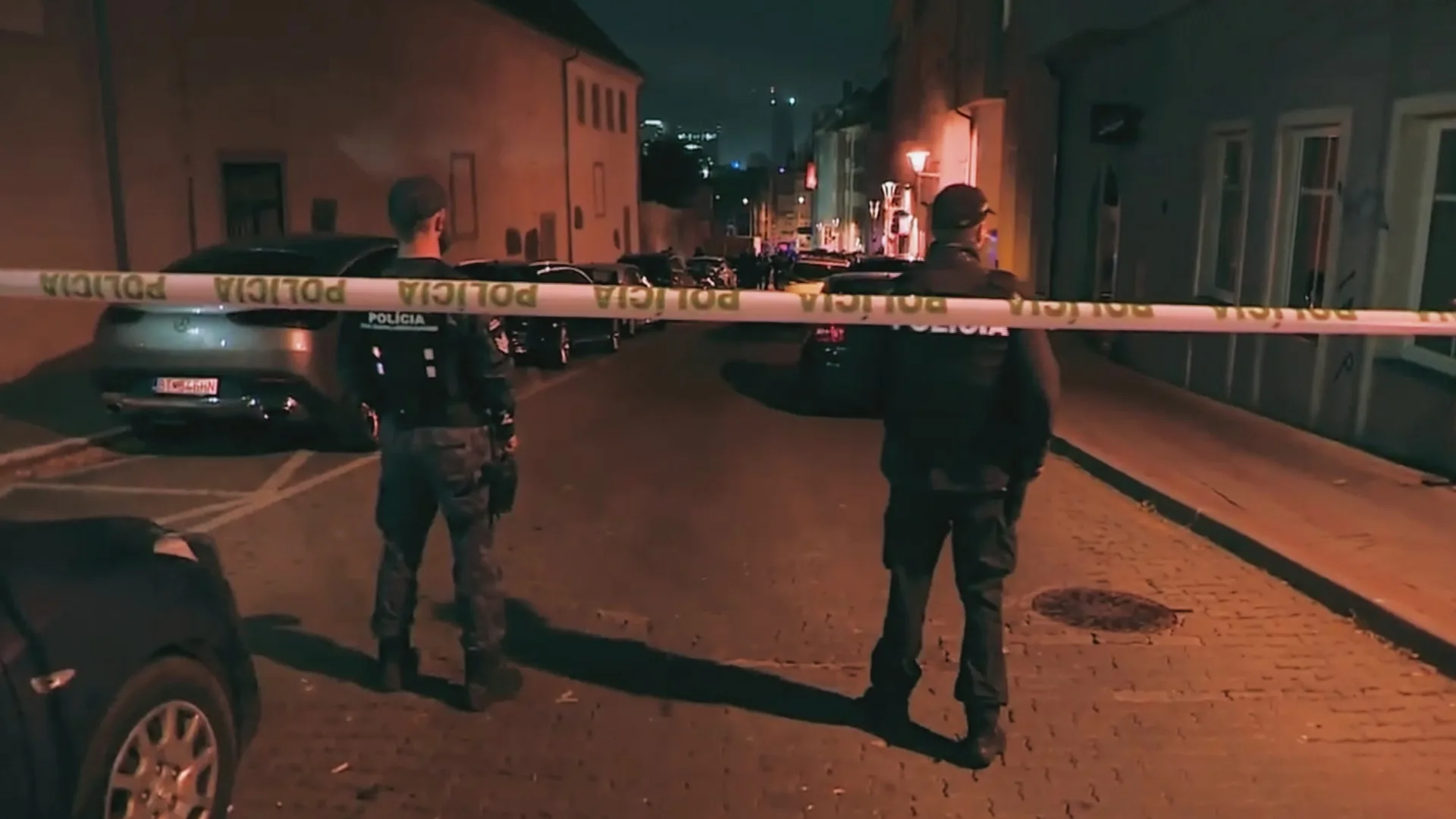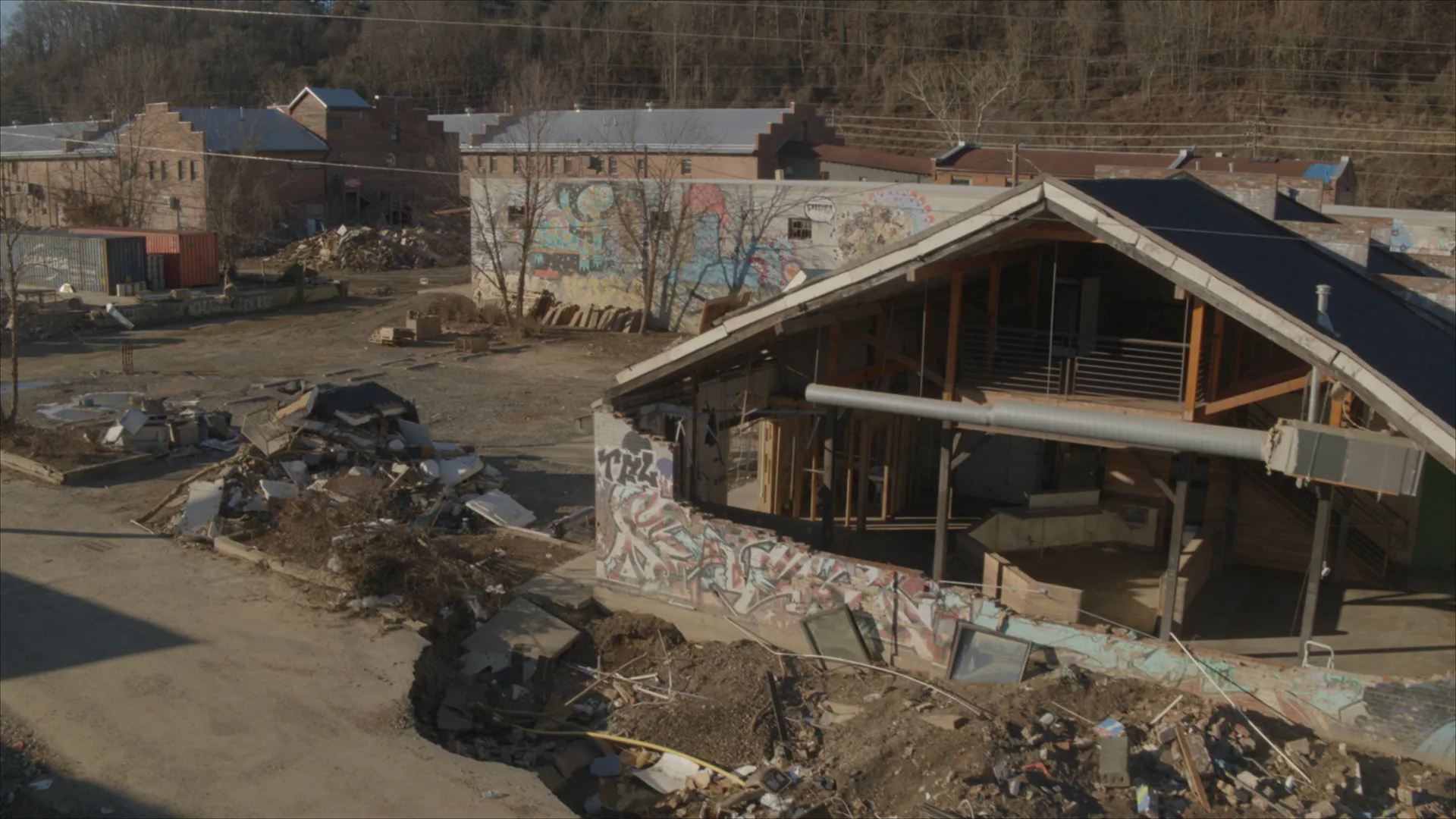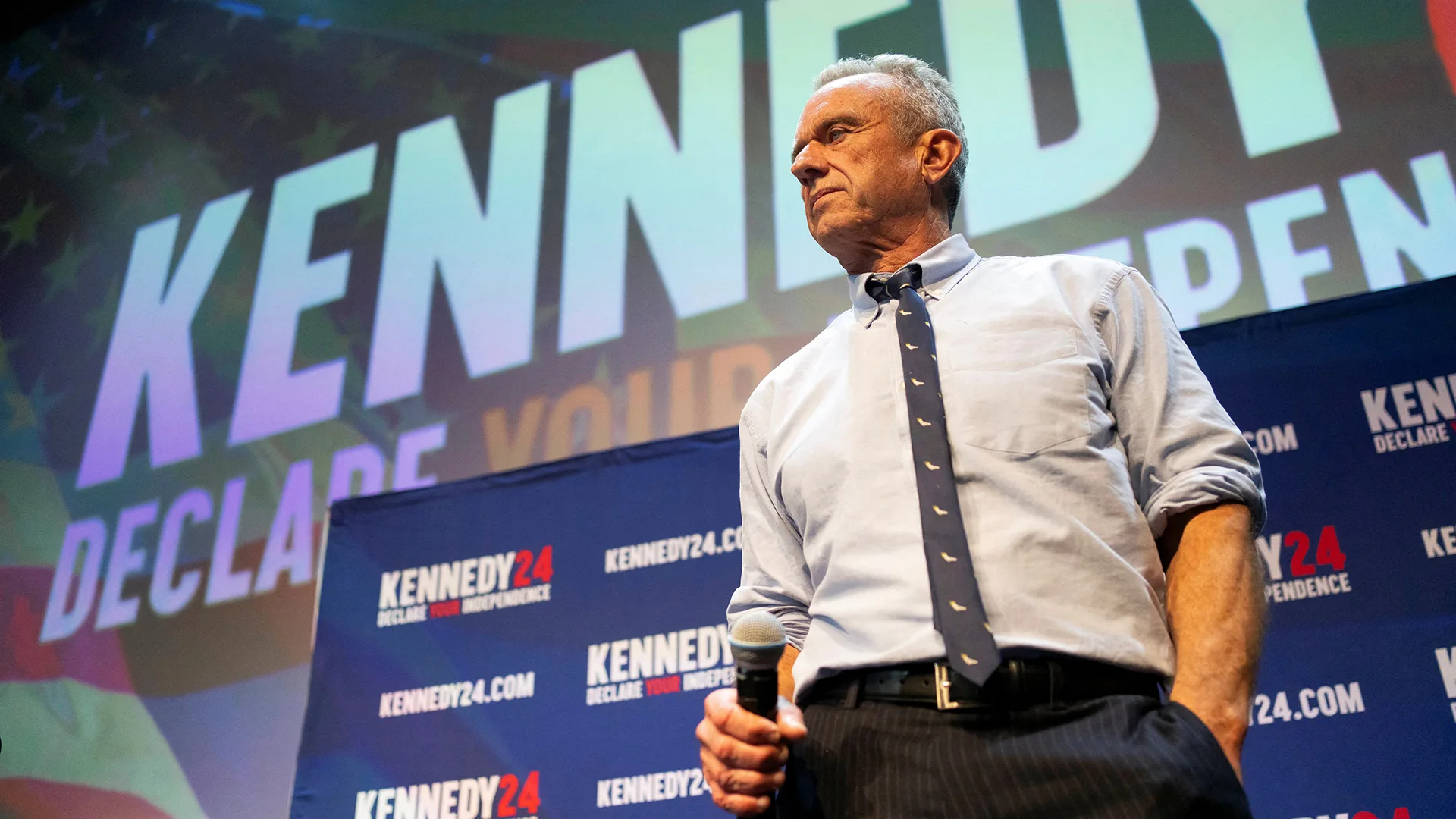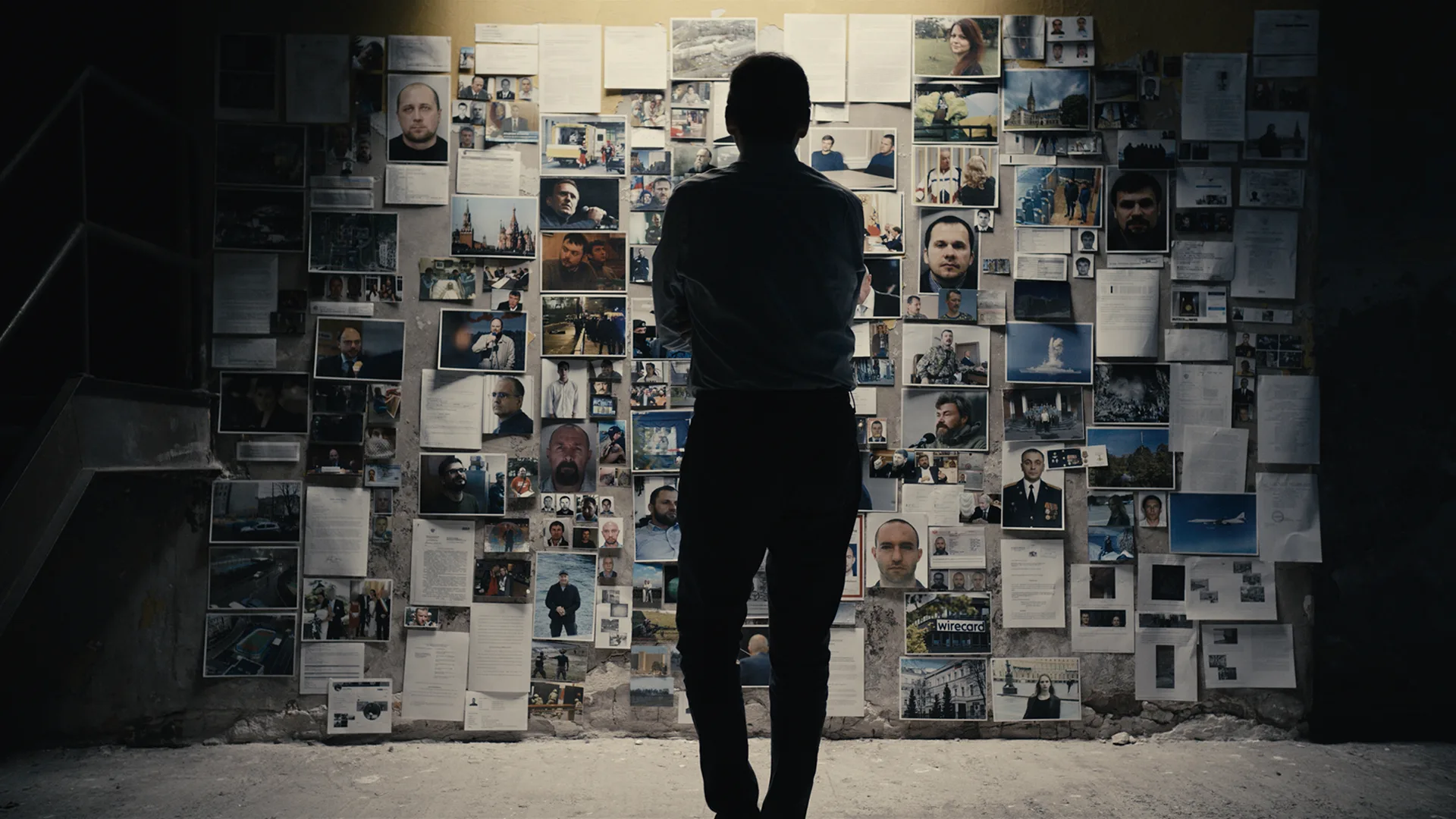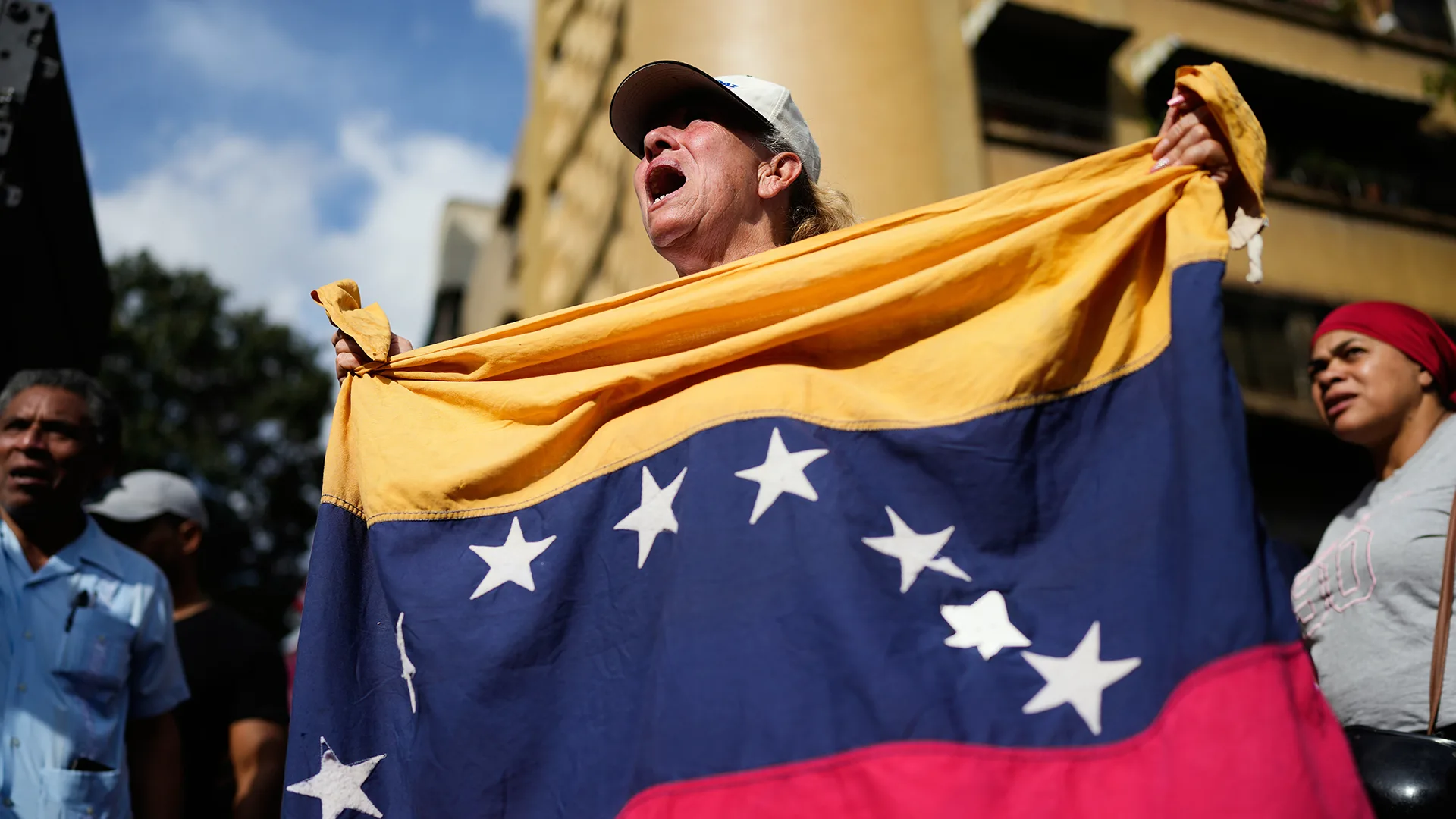Children of Ukraine
April 16, 2024
54m
FRONTLINE examines how thousands of Ukrainian children have been taken and held in Russian-controlled territory since Russia’s 2022 invasion of Ukraine
Children of Ukraine
April 16, 2024
54m
Share
FRONTLINE examines how thousands of Ukrainian children have been taken and held in Russian-controlled territory since Russia’s 2022 invasion of Ukraine. The documentary follows Ukrainian families searching for their missing children, organizations investigating the alleged abductions and Ukrainian teenagers who escaped and say they were subjected to Russian propaganda.
Support provided by:
Learn More
Most Watched
The FRONTLINE Newsletter
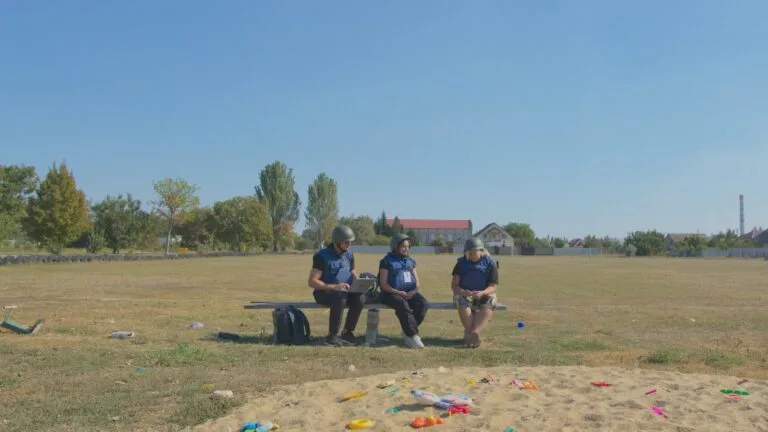
‘Children of Ukraine’ Filmmaker Describes How ‘Wars Take Place on Many Different Levels’
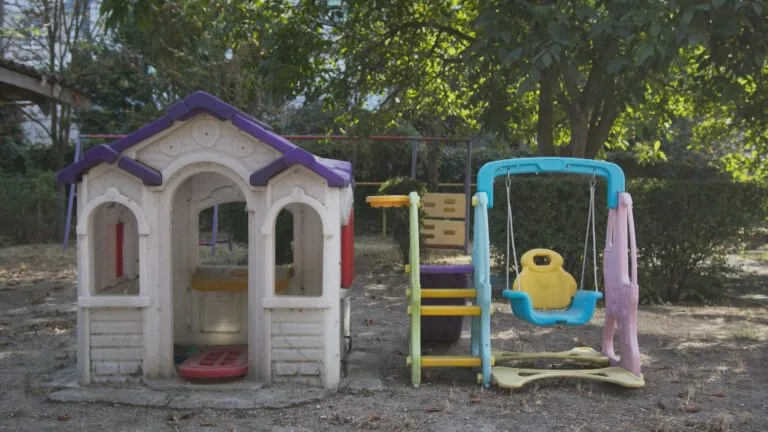
The Search for Ukraine’s Missing Children
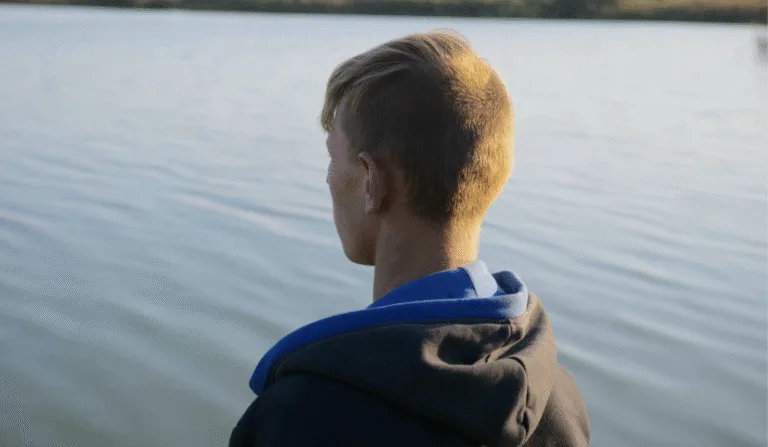
Ukrainian Teen Describes Being Taken From School by Armed Men & Held in Russian-Controlled Territory
Related Stories

Ukrainian Teen Describes Being Taken From School by Armed Men & Held in Russian-Controlled Territory

‘Children of Ukraine’ Filmmaker Describes How ‘Wars Take Place on Many Different Levels’
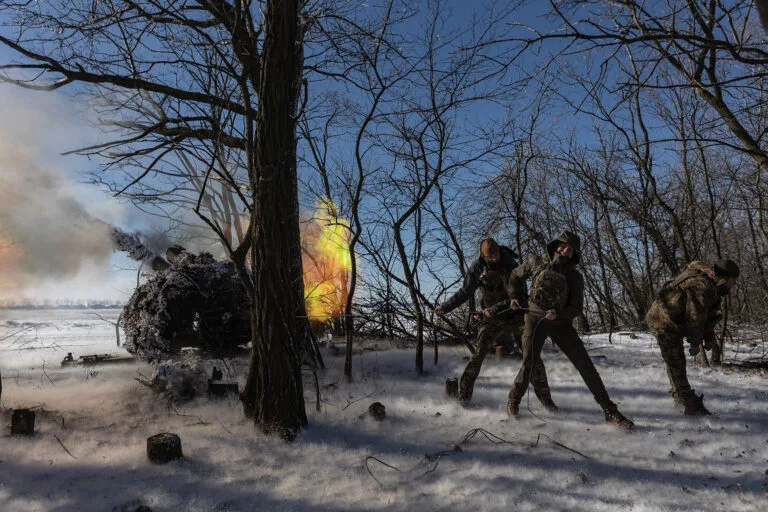
Russia’s War on Ukraine Enters Its Fourth Year
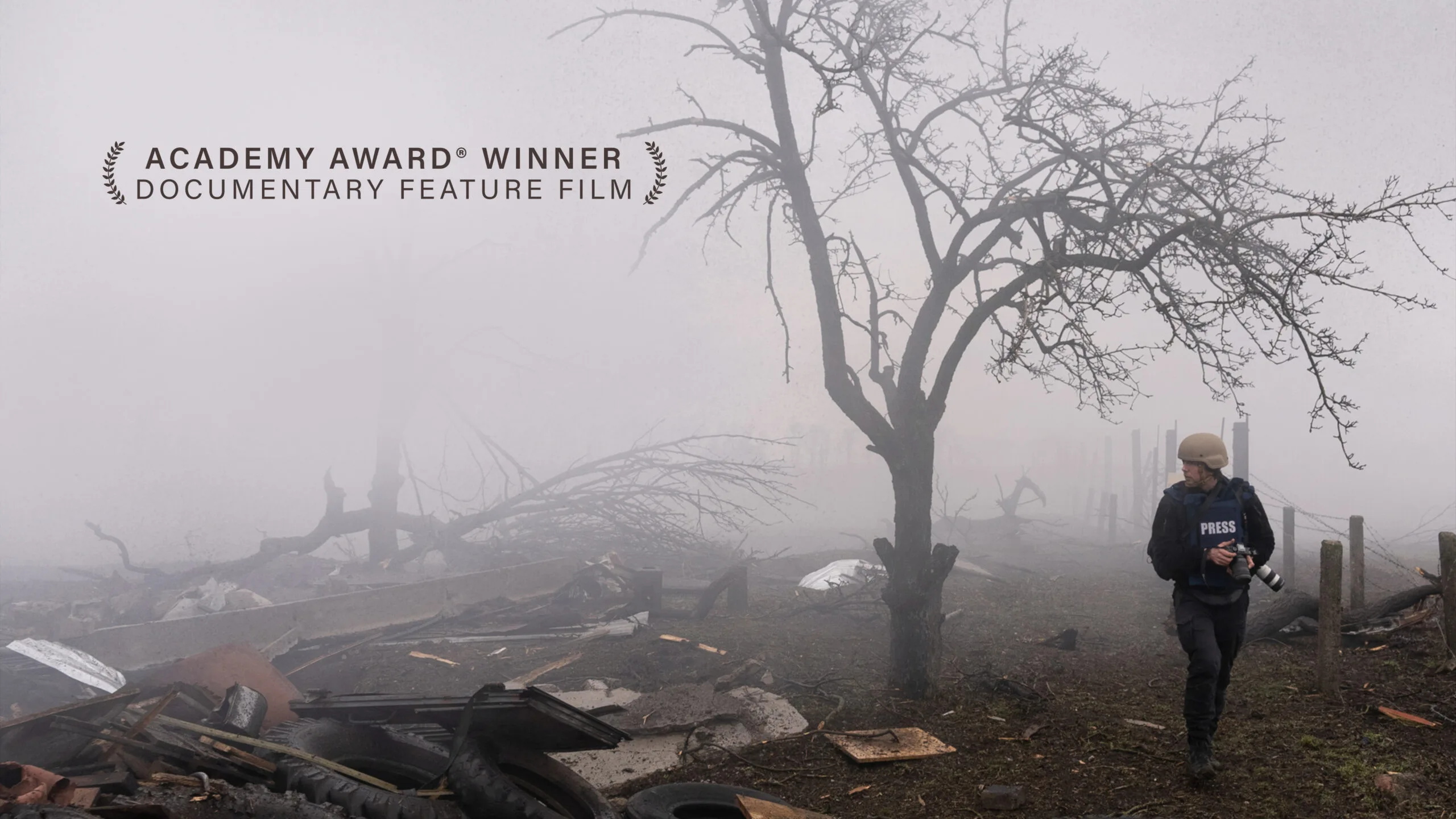
20 Days in Mariupol
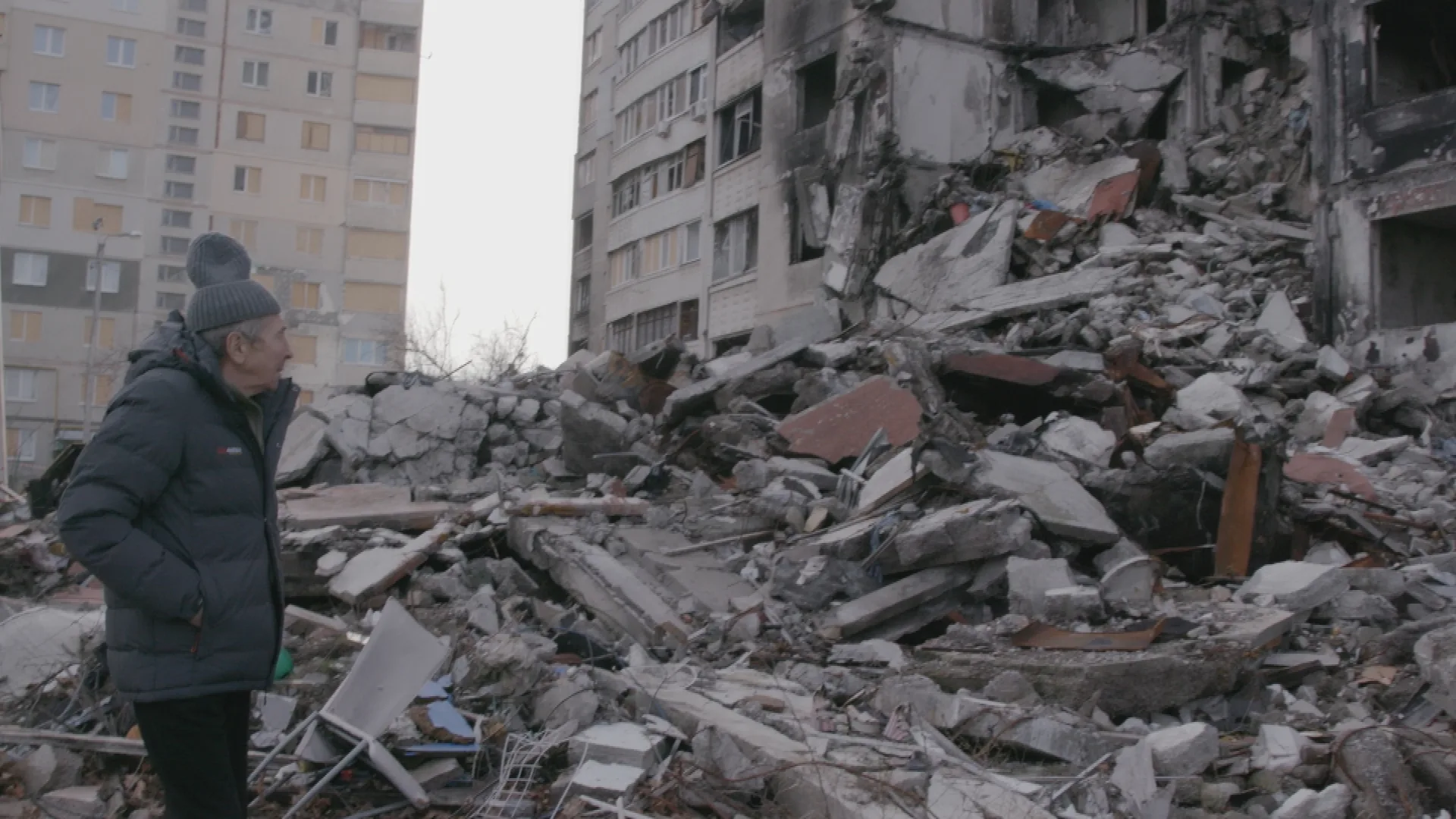
Ukraine: Life Under Russia’s Attack

The Search for Ukraine’s Missing Children
Related Stories

Ukrainian Teen Describes Being Taken From School by Armed Men & Held in Russian-Controlled Territory

‘Children of Ukraine’ Filmmaker Describes How ‘Wars Take Place on Many Different Levels’

Russia’s War on Ukraine Enters Its Fourth Year

20 Days in Mariupol

Ukraine: Life Under Russia’s Attack

The Search for Ukraine’s Missing Children
ARTEM HUTOROV:
[Speaking Ukrainian/Russian mix] The Russians gathered around the buses and we were taken out at gunpoint. They were all in balaclavas.
ANASTASIA:
[Speaking Russian] I thought I’d have to stay there and no one would see me. And I would end up being adopted by a Russian family or taken to an orphanage.
NARRATOR:
Since the start of the war, thousands of Ukrainian children have been taken and held in Russian-controlled territory.
MARYNA MUKHINA, Intl. Partnership for Human Rights:
[Speaking Ukrainian] They kidnap them while they are fleeing from the territory of Ukraine from orphanages and boarding schools. Our team is making as much effort as possible to find such children and families.
NARRATOR:
This is the story of Ukrainian families and investigators trying to track down missing children and collect evidence of alleged abductions.
ANNA LISHCHYNSKA, Intl. Partnership for Human Rights:
Basically, they try to erase our identity as Ukrainians. They try to impose their distorted version of history.
We’re still hoping to bring them back home. They’re still our children.
Chop
Western Ukraine
NADIYA DZINYK:
[Speaking Russian] When I was 4 years old, we moved to Mariupol, and my sister was about 9 years old. When we were children, she and I loved building tents. We made tents out of chairs, pillows, bedcovers. And we hid from the rain. We read books, and told each other scary stories. It was so—I miss those times and our conversations. [Cries]
I was still young. I was only 14 years old, well, almost 15. And when she said that I could become a godmother, I was so happy that my dream had come true. I had finally become a godmother.
NARRATOR:
When Russia began to bombard Ukraine in the early days of the invasion, Nadiya was no longer in Mariupol. But most of her family were still in the city.
NADIYA DZINYK:
[Speaking Russian] My mom lived in the city center. My sister was on the left bank of Mariupol. And my sister’s area was already being shelled. When I called my sister, I said, “Please go to mom’s place because they’re already shelling a lot.” When a shell hit close to my parents’ home, the roof started burning and they decided to leave.
NARRATOR:
Nadiya’s sister tried to escape with her children, husband and parents. The streets of Mariupol were increasingly dangerous. The Russian troops were now advancing through the city.
The family was crammed into one car.
NADIYA DZINYK:
[Speaking Russian] When I finally contacted her, I heard panic and her being scared, her crying. I’m saying, “Where are you?” She says, “We’re on our way now.” I’m asking, “Are you all alive?” She says, “Nadiya, please, later . . .” Then, that’s it.
NARRATOR:
They came under attack. The car was riddled with bullets.
NADIYA DZINYK:
[Speaking Russian] It sounded like fireworks. They apparently started shooting at the car. My mom said that dad had seven holes in his chest. She said that dad lay down. My sister took three breaths and also lay down. Maxim did not move at all. Mom thought he was dead, too. But then Maxim started to move, started screaming, and we realized that he was alive.
NARRATOR:
Nadiya’s mom told her that her 3-year-old nephew Max was taken to the hospital. But soon afterwards, as Russian forces swept through the city, the boy disappeared.
NADIYA DZINYK:
[Speaking Russian] I still believe he’s alive and that we’ll be able to find him. Maybe he’s in foster care now and we can get him back to us eventually.
NARRATOR:
Max’s older brother and sister survived the attack. But with their mother dead, Nadiya arranged for them to come to live with her in western Ukraine.
NADIYA DZINYK:
[Speaking Russian] Artem shut himself off. He didn’t speak at all. As my mom said, he remembers the moment they got into the car, and that’s it.
PAUL KENYON, Producer:
What do you remember about your little brother?
NASTYA, Max’s sister:
[Speaking Russian] I remember when my older brother took Max like this in his hands and whirled him around. Max liked it. Like an airplane. And he whirled me, too.
PAUL KENYON:
Do you remember what happened when you were in the car, when the loud gunshot happened?
NASTYA:
[Speaking Russian] [Pause] I forgot.
NARRATOR:
Max’s family thinks he’s been taken to Russian territory, like thousands of other Ukrainian children.
NADIYA DZINYK:
[Speaking Russian] I assume that people in that hospital were sent to Russia, because, just then, they started bombing those hospitals. And most likely he was taken to an orphanage or another institution, or he was already adopted.
Moscow
Luzhniki Stadium
February 2023
NARRATOR:
Russia has said it’s been relocating Ukrainian children as part of a mass humanitarian effort. A year into the war, President Vladimir Putin held a televised rally featuring children thanking Russian soldiers for “rescuing” them.
CHILD SPEAKER:
[Speaking Russian] Thank you, Uncle Yuriy, for saving me, my sister and hundreds of thousands of children from Mariupol.
FEMALE MODERATOR:
[Speaking Russian] You can go and give him a hug, everyone. Children, give a hug, everyone, to the man who saved you all.
NARRATOR:
In a statement, the Russian government told us that Ukrainian children have been relocated to ensure their safety and to provide medical care and education. Putin’s children’s commissioner, Maria Lvova-Belova, has overseen the operation. She claims to have five adopted children of her own, including one from Mariupol.
MARIA LVOVA-BELOVA:
[Speaking Russian] One thousand and ninety orphans have arrived to us from various children’s institutions. Of course, our Russian citizens have a big heart and they’re already lining up to take these children.
PRESIDENT VLADIMIR PUTIN:
[Speaking Russian] These are emergency cases. We shouldn’t be thinking about formalities but about the best interests of the child.
NARRATOR:
But in March 2023, the International Criminal Court issued an arrest warrant against President Putin and his children’s commissioner for the alleged war crime of unlawful deportation of children from occupied areas of Ukraine. The Kremlin dismissed the charges as “outrageous.”
A team of Ukrainian investigators is now collecting evidence they are hoping will be used for the International Criminal Court case. They work for a human rights group, the IPHR, and are traveling through recently liberated territories across Ukraine.
ANNA LISHCHYNSKA, Intl. Partnership for Human Rights:
Our mission is to find families whose children are missing till this day. And we’re trying to collect all the evidences and information about such cases so that our lawyers could qualify it after whether it was a war crime or a crime against humanity.
NARRATOR:
On this day, the team is heading for the city of Kherson in the southeast of Ukraine. It was occupied by Russian troops for the first eight months of the war, and control of some neighborhoods is still fiercely contested. They’ve come here to speak with the head of a Ukrainian children’s home about the alleged abduction of 15 children in October 2022.
VOLODYMYR SAHAYDAK, Children’s home director:
[Speaking Ukrainian] I had 52 children at the beginning of the war between the ages of 3 and 18. Well, with the beginning of the war, they found themselves with me in the occupation. We tried to live under the radar and did everything possible to avoid being found.
NARRATOR:
He says some children were smuggled out into the care of distant relatives.
VOLODYMYR SAHAYDAK:
[Speaking Ukrainian] The rest of the children we had were orphans, children deprived of parental care and children who were in difficult circumstances.
NARRATOR:
For three months the Russians left them alone. Then a group of soldiers arrived.
Security camera footage
VOLODYMYR SAHAYDAK:
[Speaking Ukrainian] The first time four men came—two soldiers in balaclavas with machine guns. Personal files were taken away and not returned to us.
NARRATOR:
He says the security cameras were turned off, and then soldiers brought a group of 15 Ukrainian children from a nearby school and left them in his care. Three months later, he says they returned and took the children away again.
VOLODYMYR SAHAYDAK:
[Speaking Ukrainian] The children were very frightened. I asked where they were taking the children. They said, “Well, it’s not your business.” I said that it is my business, “I’m the director. I need to know where the children go. Either you tell me where they’re going or they go nowhere.” And of course, I was threatened.
Then I found out that they were taken to Crimea.
Camp promotional video
NARRATOR:
Russian-occupied Crimea is home to many summer camps for kids, but since the war began, some of these camps have become holding facilities for Ukrainian children. The IPHR team thinks thousands of children from Kherson region may have ended up in camps like this.
MARYNA MUKHINA, Intl. Partnership for Human Rights:
[Speaking Ukrainian] Any conclusions are premature at the moment because a large part of Kherson is still occupied. From the available data we have, these are cases of deportation, forced removal of children from boarding schools and families separated from their children. There are thousands of deported children from Kherson region.
NARRATOR:
In its statement, the Russian government said that parents had voluntarily sent their children on vacation to protect them from ongoing military action. This is footage posted online in June 2022 from inside a Crimean camp named ‘‘Delfin.’’ The children can be seen learning patriotic Russian songs.
CHILDREN:
[Singing in Russian] Russia, what strength there is in that word, what strength there is in that word, what strength there is in that word.
DMYTRO AFANASIEV, Intl. Partnership for Human Rights:
[Speaking Ukrainian] Entire orphanages are taken, and children from other Ukrainian institutions. The Russians have their own tactics and they create a myth that they’re saving these children. In fact, it’s just propaganda.
NARRATOR:
A pro-Russian news agency published this video in October 2022, stating that it showed Ukrainian schoolchildren arriving in Crimea for placement in camps and that the children would be given lessons in Russian language, literature and history. The Russian authorities have said that family members have always been welcome to collect their children from camps, but that the situation on the front lines hasn’t always allowed it.
In Ukraine’s capital, a group of women are preparing for a dangerous journey.
FEMALE SPEAKER:
[Speaking Ukrainian] Each of you has taken responsibility for the rescue and fate of your child. You are all just incredible heroines.
NARRATOR:
This afternoon they’ll be setting off for Russia.
FEMALE SPEAKER:
[Speaking Ukrainian] Not everyone would assume such responsibility. You are the best. You were not afraid. And I also want to tell you as soon as you retrieve your child you will embrace them with your love.
MALE SPEAKER:
[Speaking Ukrainian] Someone is already smiling.
FEMALE SPEAKER:
[Speaking Ukrainian] But, of course, we’re a little scared.
NARRATOR:
The women are working with the humanitarian group Save Ukraine, which has been helping families get safe passage into Russia to retrieve their children. Their chances are uncertain. Some previous attempts succeeded, negotiating with Russian officials on the ground. But others have been intercepted and turned back.
Among those making the journey is Olha, who is trying to retrieve her granddaughters Vlada and Anastasia.
OLHA:
[Speaking Russian] My granddaughter rang me, and said, “Granny, your passport has been issued.” I said, “Vlada, when I am informed that the passport is ready and I receive it, I will travel right away.”
NARRATOR:
Her route needs to avoid front lines and will take her west out of Kyiv through Poland and Belarus, around 2,000 miles to Russian-annexed Crimea.
Olha says she originally agreed to send her granddaughters to a camp in Crimea after a pro-Russian teacher convinced her it would be a two-week vacation from the war. They’ve now been gone for five months.
Anastasia sent these pictures from inside the camp to her grandmother. She said she’d been forced to sing pro-Russian songs.
The team at Save Ukraine is concerned that the girls may be put up for adoption.
KATERYNA FEDOSENKO, Save Ukraine:
[Speaking Ukrainian] Some children spent up to six months in such camps. If they were not retrieved they were given to foster families. However, there is evidence that sometimes they don’t wait for six months, and the children are given to foster families much earlier, in a month or two.
Chop
Western Ukraine
NADIYA DZINYK:
[Speaking Russian] Now I need to see what documents I need to submit so they can help me find Maxim.
NARRATOR:
Nadiya is still trying to find her nephew Max, who disappeared after surviving the attack in Mariupol. He’d now be 4 years old.
NADIYA DZINYK:
[Speaking Russian] Maxim Nikolaevich Vasechkin. So, date of birth, year 2019. February 2019. So the next thing we need is the place of birth, Mariupol.
NARRATOR:
She has been trying to find out more about the day Max disappeared.
NADIYA DZINYK:
[Speaking Russian] When our soldiers arrived, they got mom and the kids. They told my mother that they had taken him to the hospital. It seems like the soldier wrote down Max’s details. But did he give that piece of paper to the doctors?
NARRATOR:
She sends Max’s photo to several search agencies, and her mother, Liudmyla, appears on Ukrainian television to appeal for help.
MALE TV PRESENTER:
[Speaking Ukrainian] One of our soldiers who took Maxim to the hospital found Liudmyla in a shelter and informed her that her grandchild is alive.
LIUDMYLA:
[Speaking Ukrainian] He approached and told me that the child felt fine.
NARRATOR:
A family friend has also taken up the search. Elizaveta was a colleague of Max’s father, Nikolai. In the days after the attack on their car, she became convinced that both Max and Nikolai were still alive.
ELIZAVETA KHILPITKO:
[Speaking Ukrainian] People in the city of Mariupol claimed that they had seen them. And even to this day, we are sure that they are alive. It’s just that we can’t find them at the moment.
NARRATOR:
Mariupol is still under Russian occupation, so it’s almost impossible for her to get reliable information from the city. Early on, she says she found a Russian lawyer who agreed to help her. At first, the news seemed positive.
ELIZAVETA KHILPITKO [reading email]:
[Speaking Ukrainian] Good afternoon, Elizaveta. Both Nikolai and Maxim are alive. It’s been clear from the response by the Ministry of Defense. The question is, did he leave the hospital with his son, or was he taken from there?
NARRATOR:
But five months later, the lawyer tells her a different story.
ELIZAVETA KHILPITKO [reading email]:
[Speaking Ukrainian] Good afternoon, Elizaveta. I talked to an investigating officer. He said that Nikolai and Maxim were shot. They’ve searched for their bodies, but there’s been no burial.
NARRATOR:
But Max’s family still believes he’s alive. Their search continues. They give a photograph of Max to a Ukrainian private intelligence firm, Molfar, which specializes in investigating war crimes and tracing missing children. One of the Molfar investigators agrees to an interview as long as we conceal her identity.
MOLFAR INVESTIGATOR:
Our work is a bit secret, and some secrets we cannot show to the public because it can be dangerous for me if we investigate the war criminal cases. Of course, the opposite side, the Russian cyberservices hackers, if they want to investigate our identity, they can make our life not safe. Mainly we use very advanced technologies—face recognition, artificial intelligence technologies. And you know that technician progress now is higher than it was even five years ago. And we can use all spectrum of the technologies.
NARRATOR:
After several weeks, Molfar comes up with a photograph of a boy who resembles Max and is up for adoption in the far east of Russia.
Save Ukraine has also been helping with the search for Max.
KATERYNA FEDOSENKO:
[Speaking Ukrainian] Olia, there is new information about Maxim.
OLIA:
[Speaking Ukrainian] Are you serious? Can you share with me?
KATERYNA FEDOSENKO:
[Speaking Ukrainian] Sure. Look at it. This has been sent to us. It’s a screenshot that shows a possibility of his being adopted. This is him, 4 years old.
OLIA:
[Speaking Ukrainian] You know, there is a slight resemblance. We have to check, but there is a resemblance. The only thing is the eyebrows. They seem to have changed. It means there’s a possibility the boy is alive.
IPHR Offices
Kyiv
NARRATOR:
The IPHR team is planning a risky trip to territory taken back from Russia. They’re hoping to gather more evidence to give to the International Criminal Court.
ANNA LISHCHYNSKA:
There are a lot of cases we already documented about our young boys. They put them in this military camps and trying to reeducate them politically, ideologically.
NARRATOR:
The team has heard about a 15-year-old boy named Artem who disappeared from his school in Kupiansk. The town was taken over by Russia just three days into the war. It was occupied for more than six months, but now the Russians have been driven out and the IPHR team can go in. They’ve been told that Artem has recently made it back to his family.
DMYTRO AFANASIEV:
[Speaking Ukrainian] In the past they were not ready to talk. Maybe something will change now. Let’s try to talk again.
NARRATOR:
There’s a constant threat of being bombed by Russian drones. The front is about 9 miles away.
Artem agrees to talk to the team in a quiet location near his home. He says he was at school when a convoy of Russian mini buses arrived to take him and his classmates away.
ARTEM HUTOROV:
[Speaking Ukrainian/Russian mix] The Russians surrounded the buses and we were taken out under the control of armed men.
DMYTRO AFANASIEV:
[Speaking Ukrainian] Could you please describe how many Russian soldiers there were?
ARTEM HUTOROV:
[Speaking Ukrainian/Russian mix] Well, about 50 or 60 people.
DMYTRO AFANASIEV:
[Speaking Ukrainian] Could you see their faces?
ARTEM HUTOROV:
[Speaking Ukrainian/Russian mix] No, it was impossible. They were all in balaclavas.
DMYTRO AFANASIEV:
[Speaking Ukrainian] What did you feel at that moment?
ARTEM HUTOROV:
[Speaking Ukrainian/Russian mix] That we would be shot from all sides.
DMYTRO AFANASIEV:
[Speaking Ukrainian] Where did they take you?
ARTEM HUTOROV:
[Speaking Ukrainian/Russian mix] We were taken to Svatove first, then Starobilsk, and then to Luhansk.
NARRATOR:
This is where he ended up: the Perevalsk Special Correctional Boarding School in Russian-controlled Luhansk.
CHILDREN [in unison]:
[Speaking Russian] We stand with Russia forever. Faith and glory! Our souls stand with God!
NARRATOR:
Z is a pro-war Russian propaganda motif.
CHILDREN [in unison]:
[Speaking Russian] You are welcomed by Perevalsk Boarding School!
NARRATOR:
He says his phone was confiscated and he couldn’t call his parents. Photographs published on the school’s website show him in class.
ARTEM HUTOROV:
[Speaking Ukrainian/Russian mix] We were forced to wear a Russian uniform. It was light green camouflage.
DMYTRO AFANASIEV:
[Speaking Ukrainian] How could anyone recognize that it was a Russian uniform?
ARTEM HUTOROV:
[Speaking Ukrainian/Russian mix] Patches, there were patches on it. On this side there was a Russian flag, and that side there was a letter Z. When we sang the anthem, we were forced to wear uniforms, even on holidays.
DMYTRO AFANASIEV:
[Speaking Ukrainian] Which anthem did you sing?
ARTEM HUTOROV:
[Speaking Ukrainian/Russian mix] Russian, but I didn’t sing it.
NARRATOR:
The Russian government said in its statement that Artem and his fellow students had been relocated to protect them from Ukrainian shelling and that Russia had tried to contact the children’s families. They said it’s “hardly surprising” that a Russian school would have “due regard for national symbols, including the country’s flag and anthem.”
NUSHKA:
The main purpose is to erase our national identity by this ideological, political, cultural and sometimes even military reeducation. Russians tried to discourage us, and obviously they want us to lose our identity and obey to their narratives. And that’s what Artem was like. He refused to do that and he tried to confront them. But obviously he’s just a child, and he was really scared.
NARRATOR:
After six months in the camp, Artem says he got some unexpected news.
ARTEM HUTOROV:
[Speaking Ukrainian/Russian mix] I found out about my mom—that she was coming to take me back.
NARRATOR:
This is the moment Artem was reunited with his mother. She’d managed to make the difficult journey to Luhansk with the help of Save Ukraine, and the school officials handed over her son without protest.
DMYTRO AFANASIEV:
[Speaking Ukrainian] What did you feel when you found out about it?
ARTEM HUTOROV:
[Speaking Ukrainian/Russian mix] That I will come back to Ukraine, to my native country, my native land.
NARRATOR:
In March 2023, Olha and the group of other Ukrainian women began their long journey from Kyiv to try to rescue their children. By then, Olha’s granddaughters had been in Russian-occupied Crimea for five months.
KATERYNA FEDOSENKO:
[Speaking Ukrainian] I talked to her before she left. This is a very bright person who wanted to retrieve her two granddaughters. She wasn’t afraid.
NARRATOR:
Olha’s journey took her to Belarus by train, and then into Russia by plane. But in Moscow, Save Ukraine says the women were detained and interrogated by Russian authorities. They eventually were allowed to continue, but not far from where her granddaughters were being held, Olha collapsed and died.
KATERYNA FEDOSENKO:
[Speaking Ukrainian] The grandmother’s heart stopped because of the stress she experienced. She was so close to her getting her granddaughters back.
NARRATOR:
Some Ukrainian children have managed to escape from Russian territory on their own. Serhiy is 17 years old. He returned to Ukraine two months ago, crossing the border using a copy of his birth certificate that Save Ukraine had managed to get to him.
SERHIY CHEREDNICHENKO:
[Speaking Ukrainian] I want to say that I was so lucky when I escaped Russia on that day.
NARRATOR:
After his escape, he was reunited with his family before going to college. Now he’s returning home to be interviewed by the IPHR.
For the IPHR, Serhiy’s story offers insight into how some Ukrainian teenagers have been persuaded to go to Russia. He says he was playing soccer in the occupied town of Velykyi Burluk when Russian soldiers approached, offering him cigarettes, alcohol, a house and car if he agreed to go with them.
SERHIY CHEREDNICHENKO:
[Speaking Ukrainian] He gave me a uniform, placed it like this, with a belt on top of it. My task was to put it on. Then they brought me two sets of ammunition. Then I was asked to get into the vehicle.
NARRATOR:
Serhiy’s father says that the soldiers learned that he had been adopted and said this was not recognized under Russian law. To them, Serhiy was an orphan.
VOLODYMYR SANIN:
[Speaking Ukrainian] We realized that according to Russian law we have no kinship with these children. So, at any moment they can come and take our children away.
On Aug. 10, four soldiers came to our place. They had machine guns. I talked to the soldiers and wanted to explain to them that this is just a kid. He is a teenager. He has no right to make a decision, moreover to go to another country. The commander said that he is 16 years old. He is already an adult and he has to decide his own fate.
NARRATOR:
In Russia, Serhiy says he was enrolled in Valuisky Industrial Technician School. He would spend almost a year there.
SERHIY CHEREDNICHENKO:
[Speaking Ukrainian] Very often they gave us military uniforms and makeshift machine guns. They told us we were doing heroic deeds like our grandfathers.
NARRATOR:
But Serhiy says he quickly regretted his decision to leave Ukraine when he realized he could end up being forced to join the Russian army.
SERHIY CHEREDNICHENKO:
[Speaking Ukrainian] On the first of September, the anthem of Russia was playing and we refused to sing it and left. After that, we were sent to the head of the technical school.
NARRATOR:
He says he saw his name on a list to be sent to a camp where he’d receive military training to fight against Ukraine. He’d heard reports of other Ukrainian boys who’d been trained as soldiers for the Russian army.
SERHIY CHEREDNICHENKO:
[Speaking Ukrainian] They had machine guns without magazines. They were taught to march, forced march, salute, sing, do pushups and pullups, live in military barracks and in tents, live without phones, take showers outdoors.
NARRATOR:
Just two hours before he was due to be taken to military training, he says he fled. With help from Save Ukraine, he was guided to a humanitarian corridor. He says Russian soldiers briefly stopped him, and they beat him before letting him go.
SERHIY CHEREDNICHENKO:
[Speaking Ukrainian] One of them had a metal pole. Knowing that I play soccer, he started hitting my ankles. When I reached the border, my socks were covered in blood.
ANNA LISHCHYNSKA:
So we’re going to bring this case to our lawyers, and with some help of our analytics, they are going to qualify this crime. And of course, he already got some psychological help from Centre for Protection of Children’s Human Rights.
NARRATOR:
Many of the children recently rescued from Russia receive counseling at the offices of Save Ukraine. Many returnees describe being subjected to Russian propaganda. But some say they were also kept in isolation.
KATERYNA FEDOSENKO:
[Speaking Ukrainian] When you see the children who are returned and you see them playing and smiling, you realize that they are free to say and do what they want.
NARRATOR:
Seventeen-year-old Vlad was held in Russian camps for around eight months.
KATERYNA FEDOSENKO:
[Speaking Ukrainian] There was a Russian flag and Vlad decided that it’s not good. That’s why he took the flag down and hung his underpants instead. After that Vlad was taken to a solitary confinement room.
NARRATOR:
He says a guard then threatened him.
VLAD:
[Speaking Russian] He takes out a knife and says, “Let’s go and tell me why you lie. If I see you here again, I will stab you to death.” You realize that you can be killed on any day. You can be taken away. The most frightening thing, probably, is to die there.
NARRATOR:
Outside the office, a new arrival. Weeks after her grandmother’s death, Anastasia has come home. Save Ukraine helped to secure her release. Her grandfather is here to meet her, but her sister Vlada is not with her. Anastasia says when Vlada heard her grandmother had died, she decided not to come back to Ukraine.
ANASTASIA:
[Speaking Russian] Vlada asked, “Did granny die?” And she started crying. Then I felt dizzy, so we were taken to the first-aid unit. I was afraid of Vlada being taken to an orphanage.
Kherson
NARRATOR:
Anastasia is home at last, but the city of Kherson is still not safe.
ANASTASIA:
[Speaking Russian] I have a feeling that a missile will target our house or kill us. When a missile flies over our house, mom shouts, “Nothing will happen.”
NARRATOR:
She says she initially left Kherson willingly.
ANASTASIA:
[Speaking Russian] Initially I thought that I was going to a holiday camp that I’d stayed in before, so I was not scared. All I remember was when we reached the Russian line Russian soldiers got on the bus and everyone shouted, “Glory to—” you know who. I said nothing, because I knew that I stand for Ukraine.
NARRATOR:
The IPHR team is in Kherson to interview her.
MARYNA MUKHINA:
[Speaking Ukrainian] Yesterday, the occupiers shelled Kherson region 118 times, more than 20 times that they shelled Kherson. There are two dead and there are injured.
NARRATOR:
On the edges of the city, black smoke from nearby shelling.
The team meets Anastasia in a park and gives her a flak jacket in case a Russian shell lands nearby. They ask her about life in the camp.
ANASTASIA:
[Speaking Russian] I became annoyed with classes and the Russian anthem and everything that was going on there. They didn’t allow me to leave. They said, “You’ll stay until Russia wins.”
NARRATOR:
After six months, she says that she and her sister were told they would be fostered by Russian families.
ANASTASIA:
[Speaking Russian] I thought they were insane, or they didn’t want me to return home. Of course I realized that I could end up staying there and no one would see me again. And after, that a family would adopt me or I would go to an orphanage.
Before my leaving, we were sitting in our rooms on our computers and TikTok. I thought that Vlada was in her room, too, but when I entered, she was not there.
NARRATOR:
Since she returned home, she has spoken to her sister on the phone. Vlada told her she has now agreed to live with a Russian foster family.
ANASTASIA:
[Speaking Russian] She’s been taken and that’s it. She’s very happy there. And she won’t return to Ukraine because of her grandmother’s death.
NARRATOR:
Anastasia thinks her sister has been brainwashed.
ANASTASIA:
[Speaking Russian] It really bothers me. When I came back from there, I became anxious. I started swearing, even at my grandpa and my dad. I’m angry with everyone. I feel like something possessed me.
MARYNA MUKHINA:
[Speaking Ukrainian] Nastya, we hear explosions. There is danger of a missile attack. We should go to our car and get to a safe place. Come with us. Go, go, go!
ANASTASIA:
[Speaking Russian] Where? I don’t want to go. No, f— off. You behave like a 1-year-old. You are afraid of shelling. I have been living here for 13 years. I’m not afraid of anything. I don’t want! F— off.
NARRATOR:
As of early 2024, a total of 388 children had been rescued from Russian territory, according to Ukrainian officials. Among them: the 15 children taken from Kherson Children’s Home. Russia claims that all the students taken from Kupiansk with Artem are back with their families, and that all children who wanted to return home from the camps in Crimea have now done so. But the Ukrainian government says that more than 19,000 children are still being held illegally by Russia.
Chop
Western Ukraine
NADIYA DZINYK:
[Speaking Russian] They sent me a photo of a kid who looks a lot like Maxim. He is 4 years old. Thus, adoption and guardianship are possible. He has a brother and a sister.
NARRATOR:
Max has been missing for more than two years. In spite of the initial hopes, Nadiya is now convinced that the boy up for adoption in eastern Russia is not Max after all.
NADIYA DZINYK:
[Speaking Russian] There are no similar features. Absolutely two different people. Now, tell me, does this boy look like Maxim? Why doesn’t he look like Maxim?
ARTEM, Max’s brother:
[Speaking Russian] The hair.
NASTYA, Max’s sister:
[Speaking Russian] This is dark, this is light.
NADIYA DZINYK:
[Speaking Russian] The photos are taken in different ways.
NASTYA:
[Speaking Russian] But Max doesn’t look like him.
NADIYA DZINYK:
[Speaking Russian] I think he’s probably somewhere in Russia, after all. And I think and feel that he is probably in some family, and he has probably already been adopted. And if that’s the case, I’d love to find this family and tell them to bring him back, because his brother and sister miss him. And it’s a little bit painful here when you see that they miss him. They miss Maxim so much.
The IPHR continues to gather evidence it hopes the International Criminal Court will use in its case against Vladimir Putin.
Russia maintains that Putin is innocent and being falsely accused by the ICC.
According to Ukraine, Russia continues to illegally take and hold children.
PRODUCED & DIRECTED BY Paul Kenyon
PRODUCED BY Maxim Tucker
SENIOR PRODUCER Dan Edge
EDITED BY Andy Kemp BFE
DIRECTOR OF PHOTOGRAPHY Ivan Formichenko
SOUND RECORDIST Natalia Avramenko
PRODUCTION MANAGER Claire Barry Leah Gowns
ASSISTANT PRODUCERS (Ukraine) Taras Shumeyko Anna Pantyukhova
NARRATED BY Will Lyman
COLORIST Adam Saunders
SOUND MIX Joe Cochrane
HOSTILE FILMING ADVISOR John Heron
ARCHIVE RESEARCHER AND TRANSLATIONS Olha Petruk
GRAPHICS Jennifer C. Anderson
ADDITIONAL ONLINE EDITOR/COLORIST Joey Mullin
ADDITIONAL SOUND MIX Jim Sullivan
ADDITIONAL TRANSLATION Dana Kurylyk
POST PRODUCTION TVC Soho
ARCHIVAL MATERIAL Shutterstock Yulia Zakrasovska
ADDITIONAL MATERIAL Aleksey Goncharov Magnolia TV Save Ukraine
FOR BASEMENT FILMS LTD.
EXECUTIVE PRODUCER Ben de Pear
ORIGINAL PRODUCTION FUNDING PROVIDED BY CPB, Abrams Foundation, Park Foundation, John D. and Catherine T. MacArthur Foundation, Heising-Simons Foundation, FRONTLINE Journalism Fund with major support from Jon and Jo Ann Hagler through the Jon L. Hagler Foundation and additional support from Koo and Patricia Yuen, and from Laura DeBonis.
FOR FRONTLINE
EDITOR & POST PRODUCTION COORDINATOR Tim Meagher
SENIOR EDITOR Barry Clegg
EDITOR Brenna Verre
EDITORS Christine Giordano Alex LaGore Joey Mullin
PRODUCTION ASSISTANT Stevie Jones Julia McCarthy
FOR GBH OUTPOST
SENIOR DIRECTOR OF PRODUCTION TECHNOLOGY Tim Mangini
SERIES MUSIC Mason Daring Martin Brody
EXECUTIVE ASSISTANT Ellen O’Neill
OPERATIONS SPECIALIST Will Farrell
DIRECTOR OF IMPACT AND EXTERNAL RELATIONS Erika Howard
SENIOR DIGITAL WRITER Patrice Taddonio
PUBLICITY & AUDIENCE ENGAGEMENT COORDINATOR Julia Heffernan
DIGITAL PRODUCER / EDITOR Tessa Maguire
ASSOCIATE DIRECTOR OF PUBLICITY, COMMUNICATIONS & AWARDS Anne Husted
PODCAST PRODUCER Emily Pisacreta
ARCHIVES & RIGHTS MANAGER John Campopiano
BUSINESS ASSOCIATE Sean Gigliotti
FOR GBH LEGAL Eric Brass Suzy Carrington Jay Fialkov
SENIOR CONTRACTS MANAGER Gianna DeGiulio
BUSINESS MANAGER Sue Tufts
BUSINESS DIRECTOR Mary Sullivan
SENIOR DEVELOPER Anthony DeLorenzo
LEAD, DIGITAL DESIGN & INTERACTIVE Dan Nolan
FRONTLINE/COLUMBIA JOURNALISM SCHOOL FELLOWSHIPS TOW JOURNALISM FELLOW Kaela Malig
GOGGIN JOURNALISM FELLOW Inci Sayki
FRONTLINE/NEWMARK JOURNALISM SCHOOL AT CUNY FELLOWSHIP TOW JOURNALISM FELLOW Max Maldonado
FRONTLINE/MISSOURI SCHOOL OF JOURNALISM FELLOWSHIP MURRAY JOURNALISM FELLOW Kelsey Rightnowar
ARCHIVAL PRODUCER Coral C. Salomón Bartolomei
EDITORIAL CONSULTANTS Lauren Prestileo Callie T. Wiser
SENIOR DIGITAL PRODUCER / EDITOR Miles Alvord
SENIOR DOCUMENTARY EDITOR & PRODUCER Michelle Mizner
DIGITAL EDITOR Priyanka Boghani
STORY EDITOR & COORDINATING PRODUCER Katherine Griwert
POST COORDINATING PRODUCER Robin Parmelee
SENIOR EDITOR AT LARGE Louis Wiley Jr.
FOUNDER David Fanning
SPECIAL COUNSEL Dale Cohen
DIRECTOR OF AUDIENCE DEVELOPMENT Maria Diokno
SENIOR PRODUCERS Dan Edge Frank Koughan
SENIOR EDITOR & DIRECTOR, LOCAL JOURNALISM Erin Texeira
SENIOR SERIES PRODUCER Nina Chaudry
SENIOR EDITOR, INVESTIGATIONS Lauren Ezell Kinlaw
MANAGING DIRECTOR Janice Hui
MANAGING EDITOR Andrew Metz
EXECUTIVE PRODUCER & EDITOR-IN-CHIEF Raney Aronson-Rath
A Basement Films production for GBH/FRONTLINE in association with C4
© 2024 Basement Films Ltd. and WGBH Educational Foundation All Rights Reserved
FRONTLINE is a production of GBH which is solely responsible for its content.
Explore
Policies
Teacher Center
Funding for FRONTLINE is provided through the support of PBS viewers and by the Corporation for Public Broadcasting, with major support from Ford Foundation. Additional funding is provided the Abrams Foundation, Park Foundation, John D. and Catherine T. MacArthur Foundation, Heising-Simons Foundation, and the FRONTLINE Trust, with major support from Jon and Jo Ann Hagler on behalf of the Jon L. Hagler Foundation, and additional support from Koo and Patricia Yuen. FRONTLINE is a registered trademark of WGBH Educational Foundation. Web Site Copyright ©1995-2025 WGBH Educational Foundation. PBS is a 501(c)(3) not-for-profit organization.
